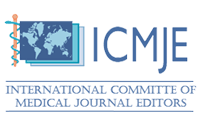Recurrent pregnancy loss-causes and management
Minakshi Rohilla
Affiliation
- 1Professor, Department of Obstetrics and Gynaecology, Post Graduate Institute of Medical Education and Research (PGIMER), Chandigarh, India
- 2Senior Resident, Department of Obstetrics and Gynaecology, Post Graduate Institute of Medical Education and Research (PGIMER), Chandigarh, India
Corresponding Author
Tanuja Muthyala, Senior Resident, Department of Obstetrics and Gynecology, Postgraduate Institute of Medical Education and Research, Chandigarh, Pin 160012, India, E-mail: drtanujambbs@gmail.com
Citation
Rohilla, M., et al. Recurrent Pregnancy Loss (RPL) - Causes and Management. (2017) J Gynecol Neonatal Biol 3(2): 43-46.
Copy rights
© 2017 Muthyala, T. This is an Open access article distributed under the terms of Creative Commons Attribution 4.0 International License.
Keywords
Recurrent Pregnancy Loss; Pre Implantation Genetic Diagnosis; Recurrent Miscarriages
Abstract
Recurrent pregnancy loss constitutes 1- 5 % of infertile couples trying to conceive and 12 to 15 % of all pregnancies. A complete evaluation for RPL identifies possible causes in 60 % of couples. Even if the cause remains uncertain after a complete and thorough evaluation, 65 percent of couples do have a successful pregnancy outcome. Identification of the cause, its specific management, thorough counselling, reassurance and follow up of these patients in clinics dedicated to RPL has best pregnancy outcome.
Introduction
Recurrent Pregnancy Loss (RPL) also known as recurrent miscarriage or habitual abortion is defined as three or more consecutive pregnancy losses prior to 24 weeks gestational age from the last menstrual period[1]. American Society of Reproductive Medicine (ASRM)[2], and European Society for Human Reproduction and Embryology (ESHRE)[3] defined RPL as two or more clinical and consecutive pregnancy losses, ectopic and molar pregnancies being excluded. However RPL is to be considered after two or more failed pregnancies, which have a radiological or histopathological documentation, some investigation must be done after each pregnancy loss, with a comprehensive evaluation to be done after three or more losses[4]. Rate of pregnancy loss and identifiable problems are almost similar in women with 2 or more than two losses; thus evaluation for cause can be considered after 2 pregnancy losses.
Discussion
Literature suggests higher incidence of spontaneous abortions amongst sub fertile couples when compared with the general population, so earlier evaluation should be considered in woman older than 35 years and infertile couple. The causes are complex and more than one factor with recurrence may be present in many cases.Genetic, thrombophilia (acquired and inherited) and anatomical causes of RPL contribute to approximately 50% of the cases, in others etiology remains uncertain. Pregnancy loss due to chromosomal & endocrine reason happens earlier than anatomic or immunological causes.
Fetal chromosomal aberrations is the most frequent cause of first trimester abortion, but possibility of abortion due to fetal aneuploidy decreases with subsequent pregnancy losses. A structural chromosomal defect, usually a balanced translocation is found in either of the spouse in 2 – 5% couples with RPL. American College of Obstetrics and Gynaecology (ACOG) recommends karyotyping of products of conception in woman with 2 consecutive or 3 non-consecutive miscarriages. For an aneuploidy fetus, no further evaluation of couple is required and Pre Implantation Genetic Diagnosis (PIGD) may be attempted in future pregnancies. If the karyotype is euploid, she should be worked up for other causes of RPL and if the karyotype result comes out to be unbalanced chromosomal translocation or inversion, parental karyotyping is to be performed and may offer for PIGD for future pregnancy attempts. However there is greater (more than 50%) probability of a live and healthy newborn in prospective progeny subsequent to natural conception as compared to couples offered PIGD/in vitro fertilisation (approximately 30%).
Acquired thrombophilia is prevalent in around 15% of women with recurrent abortion in comparison to 5% in non pregnant women without history of obstetric complication. History of RPL or early onset pregnancy induced Hypertension or unexplained pregnancy loss after ten weeks gestational age and positive lupus anticoagulant test, antibodies against beta 2 glycoprotein or anticardiolipin antibodies of medium to high titre on two occasions qualifies for diagnosis of antiphospholipid antibody syndrome (APLA). A women diagnosed with APLA it is mandatory to startlow dose aspirin preconceptionally, and heparin should be started after the first positive pregnancy test. Treatment needs to be continued throughout pregnancy and till 6 weeks postpartum. Treatment with steroids is controversialand not recommended based on current evidence[4]. Association of inherited thrombophilia is stronger for stillbirths after twenty weeks period of gestation, than for recurrent first trimester losses. Few case–control studies had shown a modest association between RPL and thrombophilias like mutation of factor V Leiden orprothrombinG20210A mutation. Royal college of obstetrics and gynaecology (RCOG) does not suggests empirical treatment with low molecular weight heparin in woman with inherited thrombophilia however anticoagulation should be considered to avoid venous thromboembolism in specific circumstances[5]. ACOG recommends against the screening for inherited thrombophilia in cases of RPL.
Suspected uterine anomalies may require magnetic resonance imaging, hysterolaparoscopy or three-dimensional pelvic ultrasound for confirming the diagnosis. Congenital an amolymost frequently coupled with RPL is the septate uterus. In a retrospective study, resection of uterine septum under hysteroscopic guidance demonstrated a significant fall in abortion rate from 80% to 17% and a successful pregnancy outcome rate from 18% to 91%[6]. Didelphys, unicornuate and bicornuate uterus more commonly cause preterm deliveries than early pregnancy losses[3]. Cervical incompetence is another cause of mid-trimester miscarriage. Cervical cerclage is mainstay for the management of cervical incompetence in pregnancy, yet it is associated with surgical complications and entails threat of initiating uterine contractions. So this procedure should only be offeredin women where the benefit outweighs the risk. In patients with history of one or higher mid-trimester losses with painless cervical dilation or absence of laborare eligible for application of history indicated cerclage and should have elective cerclage at 12 – 14 weeks POG. Non-surgical approaches like bed rest, activity restriction, and pelvic rest are not proven effective[7]. Women with obstetric history doubtful of mid-trimester abortion and were not treated with cervical cerclage should be followed up withweekly serial cervical length monitoring. Patients with a short cervix (< 25 mm) on transvaginal sonography during serial cervical length monitoring between 14 - 24 weeks period of gestation should be offered emergency cervical cerclage. Rescue circlage is to be offered in symptomatic patient with premature cervical dilation and demonstrable bulging of membranes on clinical examination or sonography in mid-trimester[8].
Maternal endocrine disorders like diabetes, hyperprolactinemia, thyroid dysfunction either clinical or subclinical should be investigated and treated. The evidence available on the role of TPO antibodies is controversial. TPO antibody screening in cases of euthyroid RPL is not recommended currently. There is an ongoing randomized controlled trial TABLET (thyroid antibodies and levothyroxine), assessing the role of thyroxine treatment in women with presence of significant thyroid antibodies, it will help in finding the role of treatment in euthyroid cases of RPL with raised Thyroid Peroxidase Antibody (TPO)[9]. Menstrual cycles irregularity, galactorrhea, headache, visual disturbances and hyperprolactinemia points towards endocrine dysfunction. Poorly controlled diabetes mellitus, Luteal phase defect with decreased progesterone levels, Hyperhomocystinemia, hypersecretion of lutenising hormone and obesity as seen in patients with polycystic ovarian syndrome, the metabolic syndrome with rising incidence, may contribute to RPL. Management of PCOD with normalization of weight or metformin may reduce the incidence of pregnancy loss[10].
Bacterial vaginosis is notorious for preterm deliveries and also acausative feature for second trimester abortions. High risk pregnancies with history of preterm deliveries and late abortions and should be screened and treated with metronidazole. Rarely infections like Chlamydia, mycoplasma, ureaplasma, herpes, cytomegalovirus, may contribute in less than 1% of cases[11].
Unexplained RPL: In fifty percent cases of recurrent abortions, causes are still unexplained in which immunological causes such as cytotoxic antibody presence, absence of maternal blocking antibodies and disturbances in Natural Killer (NK) function may play the role. Many studies have suggested that women with recurrent miscarriages have signs of increasedinflammatory immune response both before and during pregnancy[12-14]. Nevertheless, according to recent RCT and systemic review Paternal cell immunisation, third-party donor leucocytes, and intravenous immunoglobulin does not improve the live birth rate in women with previous unexplained RPL[15,16]. Based on RCT, reviews and case controlled studies there have been promising results about use of progesterone in prevention as well as treatment of recurrent abortions (European Progestin Club Guidelines, 2015)[17]. However a recent largest randomized controlled trial about role of Progesterone in women with unexplained recurrent miscarriages (PROMISE) has shown that progesterone treatment in first trimester does not prevent recurrent abortions there were no differences in the pregnancy rates at 6 to 8 weeks, 12 weeks, ectopic pregnancy, and pregnancy outcome. Average period of gestation at abortion were also statistically insignificant in progesterone versus placebo arm of the trial. Both arms of the trial were matched against age, obstetric, medical history and ethnicity[18]. Tumour necrosis factor alpha inhibitors and granulocyte colony-stimulating factor are newer treatment modalities under trial for treatment of patients with RPL[19]. There are many recently completed and undergoing trials about unexplained aspects of recurrent abortions. (Table 1)
Table 1:
| TRIAL | STUDY | RESULTS |
| PROMISE trial[15] (Progesterone in Women with Recurrent Miscarriages) | • 1,568 eligible women were signed up to take part in the trial. • 826 women who completed the trial and were followed all the way through. |
The live birth rate was 65.8 % (262/398) in the treatment group and 63.3 % (271/428) in the placebo group. Statistically it was not a significant difference. |
| The TABLET trial[9] (Thyroid Anti Bodies and LEvo Thyroxine) Ongoing trial | • To see if Levothyroxine reduces the risk of miscarriage in women who have thyroid antibodies even though their thyroid hormones are in the normal range. | A total of 952 women have been recruited. The trial results are expected to be available in 2018. |
| Intravenous immunoglobulin treatment for secondary recurrent miscarriage: a randomised, double-blind, placebo-controlled trial[15] | • Identical live birth rates were 23/42 (54.8 %) in the IVIg and 20/40 (50.0 %) in the placebo group, relative risk 1.11 (95 % CI 0.70–1.74). | IVIg did not increase the live birth rate in patients with secondary recurrent miscarriage and the treatment cannot be recommended in clinical practice. |
| The RESPONSE trial-Ongoing trial A Multi-center, Placebo-controlled Study to Evaluate NT100 in Pregnant Women with a History of unexplained Recurrent Pregnancy Loss (RPL) | To test a new medication, called NT100, in women with unexplained repeated miscarriages. To find out if it improves the chances of maintaining a successful pregnancy, the side effects and if it is easy to use. | NT100 is a man-made form of a protein called G-CSF. The results of the trial are likely to be in late Summer 2017. |
| The PRISM trial (Progesterone in spontaneous miscarriage) Ongoing trial | • If Progesterone can prevent miscarriage in women with early pregnancy bleeding | • The study period is from October 2014 to June 2018 |
| Alife2trial[20] (Anticoagulants for living fetuses in women with recurrent miscarriage and inherited thrombophilia) Ongoing trial | Whether anti-coagulant treatment reduces the risk of miscarriage in women with two or more unexplained miscarriages and inherited thrombophilia. | The results of the ALIFE2 study will clarify the need to screen for inherited thrombophilia in women with recurrent miscarriage. This will decrease costs of inappropriate screening, and reduce the burden of anticoagulant treatment in pregnant women if no benefit is found. |
Conclusion
Successful pregnancy rate of 60 % to 70 % are usual even when no etiologic factor could be identified and thus no specific treatment could be given. Therefore reassurance, appropriate psychological support and tender loving care should be provided to couples with unexplained recurrent miscarriage. A successful pregnancy outcome of 86 % can be compared with a success rate of 33 % only in women who were not given precise antenatal care at RPL clinic. Minimum workup for approach to women with recurrent pregnancy loss includes comprehensive history and meticulous examination. Detailed obstetric history regarding distinctiveness and gestation of previous pregnancy losses to assess the possible etiology is of paramount importance. Empirical treatment in women with unexplained recurrent miscarriage is superfluous and should be avoided; rather there is a need of focus on pre-conceptionalprophylactic folic acid, correction of hormonal imbalance, any preexisting genital infection and correctable structural defect in the reproductive tract. Stress reduction and lifestyle modification like curtailing use of tobacco, alcohol, and illicit drugs must be emphasized as these factors may also contribute and hamper a successful pregnancy outcome.
Funding:
None
Conflict of interest:
There are no conflicts of interest among the authors.
References
- 1. The Investigation and Treatment of Couples with Recurrent First trimester and Second-trimester Miscarriage (2011) RCOG, GTG No: 17.
Pubmed || Crossref || Others - 2. American society for reproductive medicine. Evaluation and treatment of recurrent pregnancy loss: a committee opinion. (2012) Fertil Steril 98(5): 1103-1111.
Pubmed || Crossref || Others - 3. Obstetrics and gynaecology clinics of North America. Clinical review articles: Recurrent First trimester pregnancy loss (2014) 41: 1-18.
Pubmed || Crossref || Others - 4. Practice Committee of the American Society for Reproductive Medicine. Definitions of infertility and recurrent pregnancy loss. (2008) Fertility and sterility 90(5): S60.
Pubmed || Crossref || Others - 5. Lockwood, C., Wendel, G., Committee on Practice Bulletins. Practice bulletin no. 124: inherited thrombophilias in pregnancy. (2011) Obstet Gynecol 118(3): 730-740.
Pubmed || Crossref || Others - 6. Daly, D.C., Maier, D., Soto-Albors, C. Hysteroscopic metroplasty: Six years’ experience. (1989) Obstet Gynecol 73(2): 201-205.
Pubmed || Crossref || Others - 7. Grobman, W.A., Gilbert, S.A., Eunice Kennedy Shriver (NICHD) (MFMU) Network, et al. Activity restriction among women with a short cervix. (2013) Obstet Gynecol 121(6): 1181-1186.
Pubmed || Crossref || Others - 8. Li-Qiong Zhu, Hui Chen, Li-Bin Chen, et al. Effects of Emergency Cervical Cerclage on Pregnancy Outcome: A Retrospective Study of 158 Cases. (2015) Med Sci Monit 21: 1395-1401.
Pubmed || Crossref || Others - 9. The TABLET Trial: A Randomised Controlled Trial of the Efficacy and Mechanism of Levothyroxine Treatment on Pregnancy and Neonatal Outcomes in Women with Thyroid Antibodies 2012.
Pubmed || Crossref || Others - 10. Pratip Chakraborty, Goswami, S. K., Shweta Rajani, et al. Recurrent Pregnancy Loss in Polycystic Ovary Syndrome: Role of Hyperhomocysteinemia and Insulin Resistance. (2013) PLoS One 8(5): e64446.
Pubmed || Crossref || Others - 11. Pippa Oakeshott, Phillip Hay, Sima Hay, et al. Association between bacterial vaginosis or chlamydial infection and miscarriage before 16 weeks' gestation: prospective community based cohort study. (2002) BMJ 325(7376): 1334.
Pubmed || Crossref || Others - 12. Sotnikova, D., Voronin, D., Antsiferova, Y., et al. Interaction of decidual CD56+ NK with trophoblast cells during normal pregnancy and recurrent spontaneous abortion at early term of gestation. (2014) Scand J Immunol 80(3): 198-208.
Pubmed || Crossref || Others - 13. Papamitsou, T., Toskas, A., Papadopoulou, K., et al. Immunohistochemical study of immunological markers: HLAG, CD16, CD25, CD56 and CD68 in placenta tissues in recurrent pregnancy loss. (2014) Histol Histopathol 29(8): 1047-1055.
Pubmed || Crossref || Others - 14. Atsushi Fukui, Mai Kamoi, Ayano Funamizu, et al. NK cell abnormality and its treatment in women with reproductive failures such as recurrent pregnancy loss, implantation failures, preeclampsia, and pelvic endometriosis. (2015) Reproductive Medicine and Biology 14(4): 151-157.
Pubmed || Crossref || Others - 15. Christiansen, O.B., Larsen, E.C., Egerup, P., et al. Intravenous immunoglobulin treatment for secondary recurrent miscarriage: a randomised, double-blind, placebo-controlled trial. (2015) BJOG 122(4): 500-508.
Pubmed || Crossref || Others - 16. Wong, L.F., Porter, T., Scott, J.R. Immunotherapy for recurrent miscarriage. (2014) Cochrane Database of Systematic Reviews (10): CD000112.
Pubmed || Crossref || Others - 17. Schindler, A.E., Carp, H., Druckmann, R., et al. European Progestin Club Guidelines for prevention and treatment of threatened or recurrent (habitual) miscarriage with progestogens. (2015) Gynecol Endocrinol 31(6): 447-449.
Pubmed || Crossref || Others - 18. Coomarasamy, A., Williams, H., Truchanowicz, E., et al. A Randomized Trial of Progesterone in Women with Recurrent Miscarriages. (2015) N Eng J Med 373(22): 2141-2148.
Pubmed || Crossref || Others - 19. Toth, B., Jeschke, U., Rogenhofer, N., et al. Recurrent miscarriage: current concepts in diagnosis and treatment. (2010) J Reprod Immunol 85(1): 25-32.
Pubmed || Crossref || Others - 20. de Jong, P.G., Quenby, S., Bloemenkamp, K.W., et al. ALIFE2 study: low-molecular-weight heparin for women with recurrent miscarriage and inherited thrombophilia-study protocol for a randomized controlled trial. (2015) Trials 16(1): 208.
Pubmed || Crossref || Others












